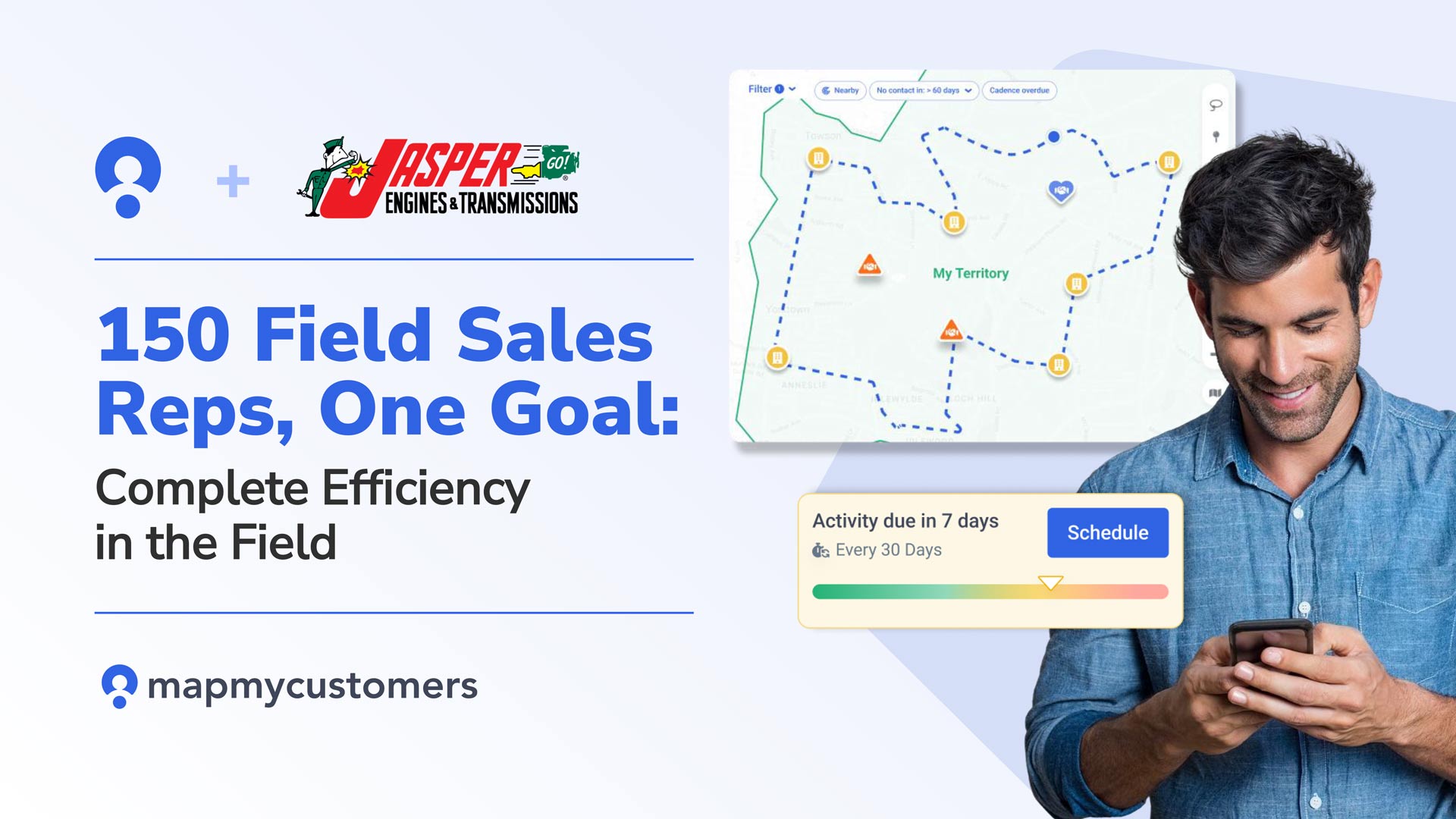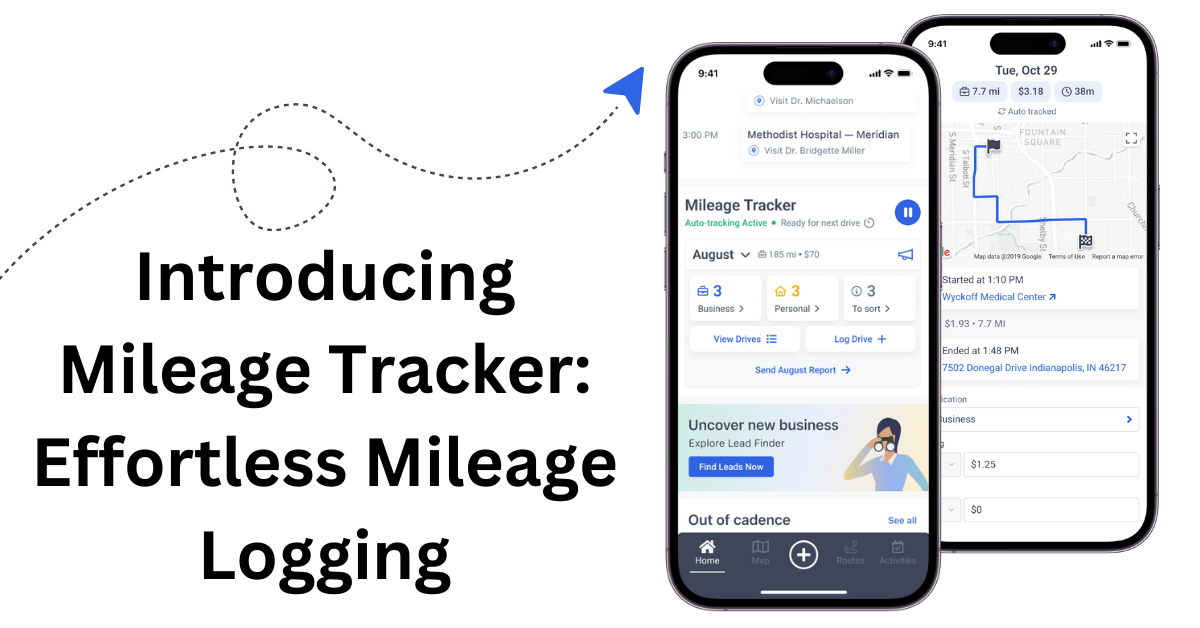Behind every mega-successful sales team is a mega-powerful sales ops team. So, what exactly is sales ops? And how do you put it to work for your team?
Sales operations (or sales ops, for short) is all about making the sales process smoother for your reps. It’s the grease to your sales-wheels, the MiracleGro to your blossoming team, the Alfred to your Batman.
On a less metaphorical note, sales ops is about implementing systems to guide your sales team to success, including:
- Data
- Strategy
- Support
The name “Sales Ops” may sound a bit 007-ish, but we’re going to remove any shroud of mystery. It’s an essential function of any B2B sales team and this guide will break down everything you need to know to put it to action for your team.
What is sales ops?
We touched on this already, but now let’s go deeper.
You’ll see sales ops defined differently across different teams and companies. But at the end of the day, there are three key functions of any sales ops team: data, strategy, and support.
Data
Data is how you measure, analyze, and optimize key performance indicators (KPI) for your sales team. Sales ops teams are responsible for:
- Data management
- Data collection (the tools used, metrics recorded, etc.)
- Data analysis (strategies, sharing results, finding trends)
- Implementation (disseminating information to sales teams)
- Sales forecasting (making predictions based on historical data)
Strategy
Strategy is the techniques, tactics, and methods used by your sales team to drive sales. Sales ops give sales teams their roadmap to success by taking the lead on:
- Sales territories (defining, distributing, evaluating)
- Lead generation
- Technology (discovery, implementation, training, automation)
- Workflows (optimizing, streamlining, increasing productivity)
Support
Support refers to the inter-team dynamics and the ways in which your sales team is empowered, educated, and held accountable.
- New reps (training, onboarding)
- Communication (choosing technology, sharing relevant information)
- Incentives (rewards program, contracts)
What do sales ops managers do?
While the specific structure of sales ops teams will vary from company to company, they all have one thing in common: sales ops managers.
Sales ops managers are data-driven team leaders who empower sales teams to sell more effectively and efficiently by assuming responsibility for operations, optimization, and administration.
Before we said sales ops is the Alfred to the sales team’s Batman, and that’s especially true when we look at the relationship between sales ops managers and sales reps.
Day-to-day tasks of a sales ops manager
We’ve looked at what sales ops managers do from a top-level, but what does their actual day-to-day look like?
According to Glassdoor, most companies expect sales ops managers to:
- Find and implement new technologies across sales teams
- Generate leads (or assist the marketing team in determining the best outreach methods)
- Onboard and train new sales reps
- Track historical sales metrics
- Communicate between sales teams and upper-management
- Set goals and targets for sales reps (and evaluate their progress)
- Create presentations / reports to share progress with leadership
- Check-in with sales reps regularly
Skills every sales ops manager should have
Since sales ops involves data analysis, sales strategy, admin, and team building, effective sales ops managers will have a unique combination of sales experience, people skills, and love of technology. As such, they may have studied business, marketing, or technology.
Here are some technical skills they should have:
- Knowledge of CRMs (usually SalesForce)
- Knowledge of sales database software
- Data modeling and analysis
- Understanding of sales pipelines
And here are some soft skills they should have:
- Effective multitasking
- Thriving in small groups
- Clear, friendly communication
- Problem-solving
- Comfort learning new technology
- Results-oriented
What sales ops technology should you use?
By now you know that sales ops spans many, many fields—and, sales ops is responsible for implementing technology within your sales team. So it should come as no surprise that there are a ton of sales ops tools to choose from.
Like with any technology, try adding one at a time and seeing how it goes.
CRM
Customer-relationship management software is the cornerstone of sales ops.
It allows your teams to record, share, and analyze data so that you can optimize and streamline your processes down the road. It also can help you to automate parts of your sales funnel, like emails and follow-ups.
Some of the most popular CRMs include Salesforce, Hubspot, Zoho, and Freshsales—but there are tons of other options on the market. To choose the best fit for your team, it’s important to consider factors like:
- How many team members need access to the CRM?
- What are you looking for in terms of data analysis?
- What information is important for your team members to record?
- Is it optimized for mobile use?
- Which parts of the sales funnel does it help with?
Internal communication
Much of what sales ops managers do involves connecting with their reps and helping to make sure they’re on target. So naturally, it’s important that you have a good way to communicate within your company.
Beyond phone calls and texting, many successful sales ops teams use applications like Slack, Zoom, and Skype to connect with team members. Having a designated work-only channel is important for keeping conversations quick and on-target.
Email automation tools
Email automation lets you stay engaged with prospects and clients without actually, you know, engaging.
As we mentioned before, CRMs often have light email automation options, like follow-ups. But when you want to do something ultra-complex—like long sequences with multiple paths, variables, and customizations, you’ll need a specialized email tool.
With software like ActiveCampaign, Drip, and Mailchimp, you can manage your email list in one spot and create various campaigns to automatically subscribe people to. For example, if someone subscribes, you’ll probably automatically queue them into a welcome sequence; if they fill their cart but don’t checkout, you might put them in an abandoned cart sequence, and so on.
One big reason why sales ops teams love email automation is because it gives you access to tons of data. You can A/B test subject lines, see open rates, click through rates, unsubscribe rates, which links are the most popular, where in the sequence people convert, and more.
Data analysis tools
Speaking of data, all the numbers in the world don’t mean anything without the tools to evaluate and analyze them!
Many data analysis tools not only help you to break down numbers into, well, more numbers (like percentages and rates) but also help with data visualization—that is, putting the information into helpful, easy-to-read graphs, charts, and models.
When it comes to sales ops, the metrics that matter most will vary from business to business and industry to industry. But some of the most common are:
Sales Averages:
- Average win ratio
- Average sales cycle length
- Average deal value
- Customer lifetime value
Time:
- Lead response time
- Time spent selling
- Response time
Efficiency:
- Upsell / cross-sell rate
- Customer acquisition cost
- Pipeline efficiency
- Retention / churn rates
Reps:
- Monthly calls or meetings per rep
- Sales per rep
For a free, DIY approach, you can use Excel—assuming you’re down to put in the elbow grease (or download the templates). But for more complicated tasks, you may want to turn to professional tools.
For example, to use location intelligence—which cross-references any of the above KPI with a geospatial data point—you’ll need a specialized tool like MapMyCustomers, or Salesforce Maps.
Optimization / Productivity software
Sales ops is all about streamlining processes and optimizing systems. And fortunately, there are tons of awesome tools out there to help you become more productive at just about everything.
The important thing to remember is that, in sales ops, you’re not just looking for tools to make your day easier—you’re also looking for tools that you can introduce to your reps to help them sell more efficiently and effectively.
Here’s a taste of the kinds of tools out there:
- Route optimization (MapMyCustomers)
- Phone calls (Gong)
- Predicting outcomes (Leadspace)
- Social media management (Hootsuite)
- Build sales funnel (Leadpages)
- Lead enrichment (LeadFuze)
30-60-90 day plan for sales ops implementation
If you don’t have a system for sales ops in place, that’s okay! The work is likely still getting done—just by different people.
Make the implementation process more efficient and effective for everyone by easing into new waters over a three-month time frame using what’s called a “30-60-90 day plan.”
If you’re unfamiliar, a 30-60-90 day plan is exactly what it sounds like. It breaks down exactly what you should be focused on and doing within three thirty day windows, guiding you to a slow but steady ramp-up to fully operational.
30 days
Your first 30 days are all about the set-up. At this stage in the process, you’re focused primarily on building a team and determining objectives.
Specifically, you want to be sure to designate a sales ops manager (if you’re unsure about who to choose, be sure to refer to the earlier section in this article when we discussed the skills every sales ops manager should know).
Whether you’re hiring from outside or shifting existing employees’ roles, be sure to introduce your sales ops team to your sales team. Cohesion and collaboration is integral to success, so it’s important that both teams know, like, and respect one another!
A great way to get started on the right foot is for your new sales ops team to ask your sales team how they can best help them. What operational and administrative tasks are inhibiting them the most? What non-selling to-dos are taking up the most time? Their answers will give your team a place to optimize first.
Of course, you don’t just have to take your sales team’s word for it. By analyzing historical data, your new sales ops team can find other opportunities for optimization and improvement.
Naturally, then, you will wrap up your last 30 days with some tangible goals and target KPI, along with specific action steps to try to achieve them.
60 days
You’re next 30 days are all implementation. If you love sales ops, then you love data analysis—and this is when we first start collecting the data to analyze down the road.
During this time, you’re putting the action plan you identified during the first thirty days to work. You’re recording data, implementing new strategies, and pioneering new techniques.
A big step during these 60 days is implementing new technologies. This will almost always involve a learning curve, and may necessitate some organized training sessions. (It’s helpful to pace the new technology so you aren’t introducing too much at once.)
It’s important to check in with your sales team regularly to make sure that nothing is slipping through the cracks during this transitional time. Afterall, they are going to have to get comfortable with handing the reins over some tasks that they were accustomed to doing themselves. Building trust is key.
Similarly, since your team is brand-new, check in amongst your own team regularly to make sure everybody stays on the same page.
By the end of your 60 days, you should have a healthy amount of data at your fingertips, and a more smoothed-out relationship with your sales team.
90 days
Finally, your final 30 days are all about optimizing. In many ways, what you’re doing here will resemble what your team did towards the end of the first thirty days—you’re looking at data and making an updated action plan.
Be sure your team looks for trends and determines what is clearly working, what clearly isn’t working, and what needs more time to simmer.
Weigh feedback from your own team and the sales team to be sure you’re on the right track.
Analyze where the most time is spent, and see if there are any redundancies—is there any way for you to streamline parts of the processes? For example, at any point, is the same data being recorded twice? Is there a task you’re doing that could be automated?
Create a new action plan and repeat! More than anything, sales ops is about testing, theorizing, and trying again. It’s a constant learning process, which makes it both challenging and fun.
Putting it all together
Having a dedicated sales ops team is essential to thriving as a B2B business. Not only does sales ops enable you to optimize, but it also empowers your sales team to spend more time actually selling and decreases sales rep burnout by taking some tasks off their plate.






